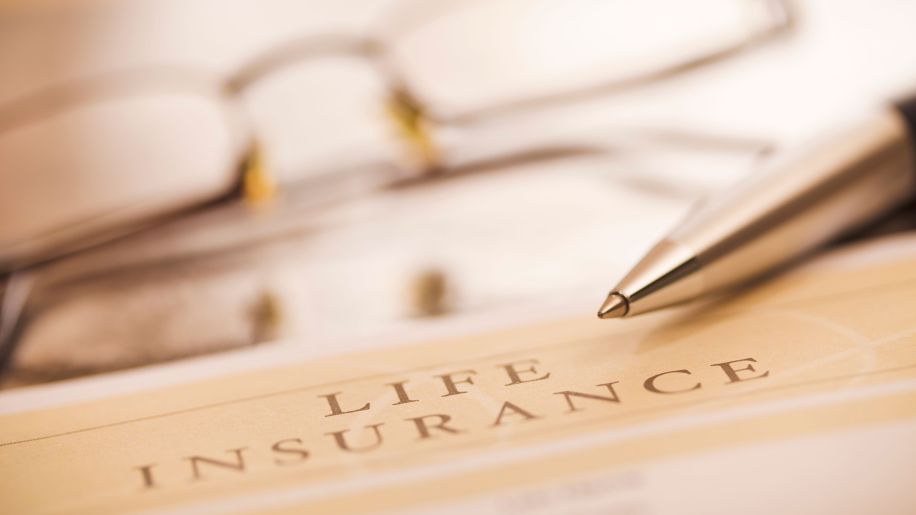The 5 kinds of insurance you need
Understand the basic types of coverage most adults should consider purchasing.
Updated on May 20, 2022

One’s insurance needs change as circumstances and priorities change. In some cases, it’s a good idea to buy certain types of insurance when you hit a milestone birthday. Turning 50 may prompt you to purchase long-term care insurance, for example. In other cases, you may want to purchase insurance when you experience a life-changing event, such as getting married or having a child.
That said, there are five basic types of insurance that most adults should consider purchasing no matter which stage of life they’re in. Read on to learn about the essential policies that can help protect your financial future.

Health insurance
Health insurance is the most important type of coverage for anyone to purchase, regardless of age, family medical history, or lifestyle. For starters, it could save you from financial ruin that may result from an accident or unexpected illness.
For instance, the average 1.5-day hospital stay related to minor chest pain could cost upwards of $19,000, according to the Iowa Hospital Association. A broken wrist that requires surgery costs almost $35,000 at North Shore University Hospital in New York. And the average cost of an emergency room visit in 2019 was roughly $1,100.
According to the most current guidelines, all health insurance policies must cover a percentage of the costs involving emergency services, hospitalization, prescription drugs, pregnancy and maternity care, mental health, and rehabilitation services, along with other services. Also, many health insurance policies will provide free preventive care. This includes vaccines and annual physical exams, as well as recommended screenings, which can detect early stages of certain health conditions such as cardiovascular disease and some cancers.

Car insurance
Having car insurance is a requirement in most states, and each state has their own coverage standards that must legally be met. But you may want to consider purchasing a policy that offers additional protection beyond your state’s requirements, such as property liability and bodily injury liability coverage. Why? If you are involved in a car accident, you could be responsible for paying another driver’s medical expenses and/or their lost income. Liability coverage could offset some of these potentially large costs.
Collision coverage can help pay for car repairs after an accident while comprehensive coverage can protect your wallet if your vehicle is stolen or damaged by anything outside of an accident, like a fire or fallen tree branch.

Homeowners or renters insurance
Whether you’re renting or buying, having an insurance policy for your home protects personal property by replacing the cost of stolen or damaged valuables like furniture, electronics, and jewelry. This insurance can also help pay medical bills if a guest has an accident under your roof and it can cover temporary living expenses if your home becomes uninhabitable. Other items often covered in a homeowners policy include repairs for structures destroyed by a covered peril like fire or natural disasters, as well as property damage in someone else's home for which you are legally responsible.
Keep in mind that this type of coverage tends to be inexpensive. But if you are able to purchase multiple policies from the same company (say, car insurance and renters insurance), you can often receive a discounted price.

Life insurance
Life insurance pays a certain amount of money to your loved ones (beneficiaries) in the case of your death. This type of insurance is highly recommended for those who have others relying on their income, including children, a partner, or elderly parents. Depending on the policy, life insurance can help pay for outstanding medical costs and debts, funeral costs, your mortgage, and your children’s future expenses (like college, a wedding, or a home). Life insurance can also help your family maintain their current lifestyle if something should happen to you.
Single adults without children may not benefit from purchasing life insurance or may just opt for a small plan that covers funeral costs.

Disability insurance
Consider disability insurance as a way of protecting your income. If you are unable to work due to an injury or health condition, this coverage can help protect your mortgage and provide living expenses when medical costs might be high.
Your employer may offer disability insurance at a group rate, and people under the age of 65 who are self-employed can buy disability insurance through an insurance company. It’s recommended to purchase a policy that covers between 60 percent and 80 percent of your current pre-tax salary. According to insurance company Guardian, you can expect to pay between 1 percent and 3 percent of your annual income for an individual disability plan that will cover needed expenses.

Consumer Health Ratings. Emergency Room – Typical Average Cost of Hospital ED Visit. Accessed May 20, 2022.
Guardian. Disability insurance for the self-employed: What you need to know. Accessed May 20, 2022.
Featured Content

slideshow

article

slideshow

slideshow
